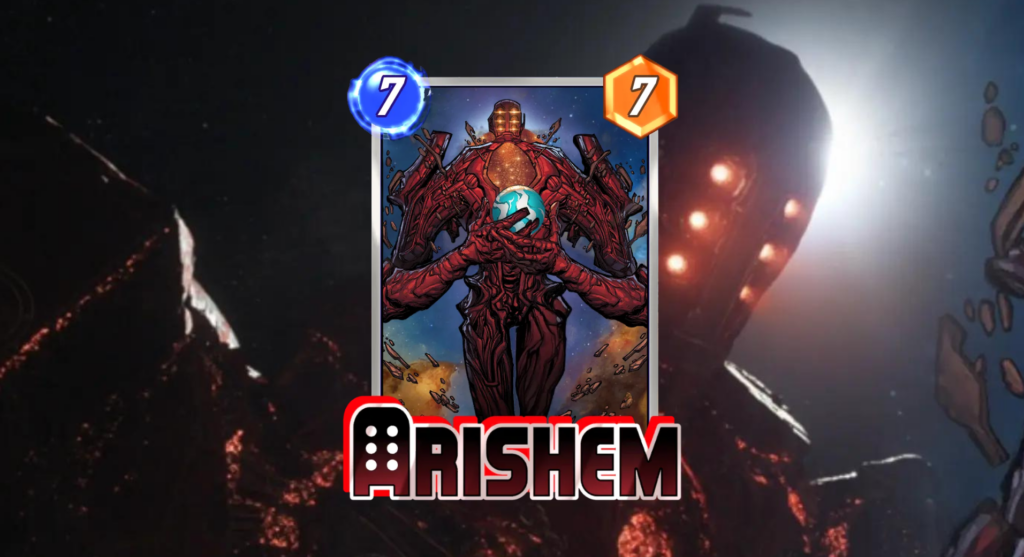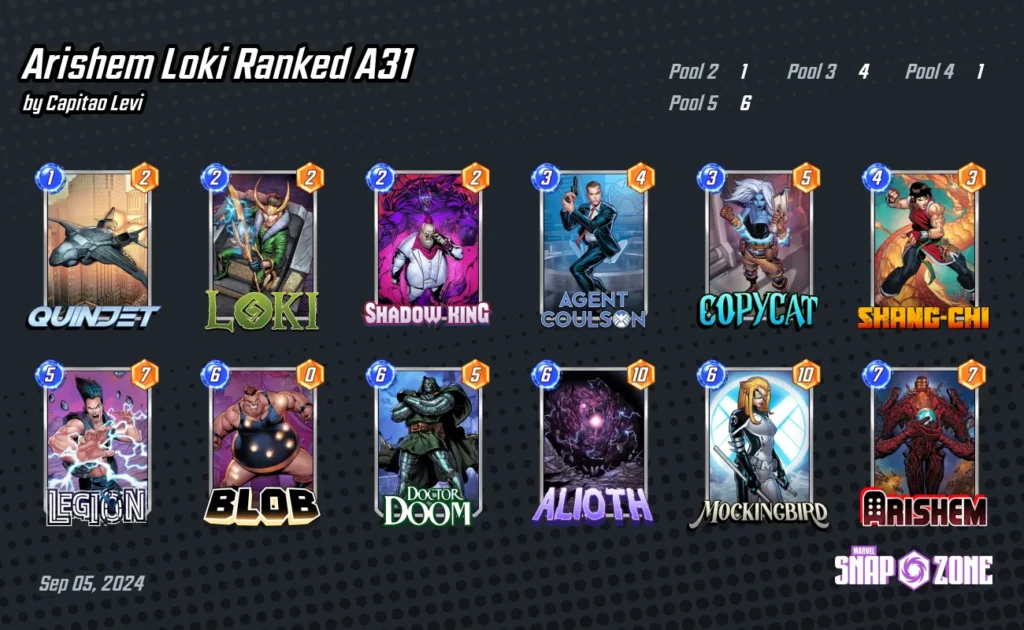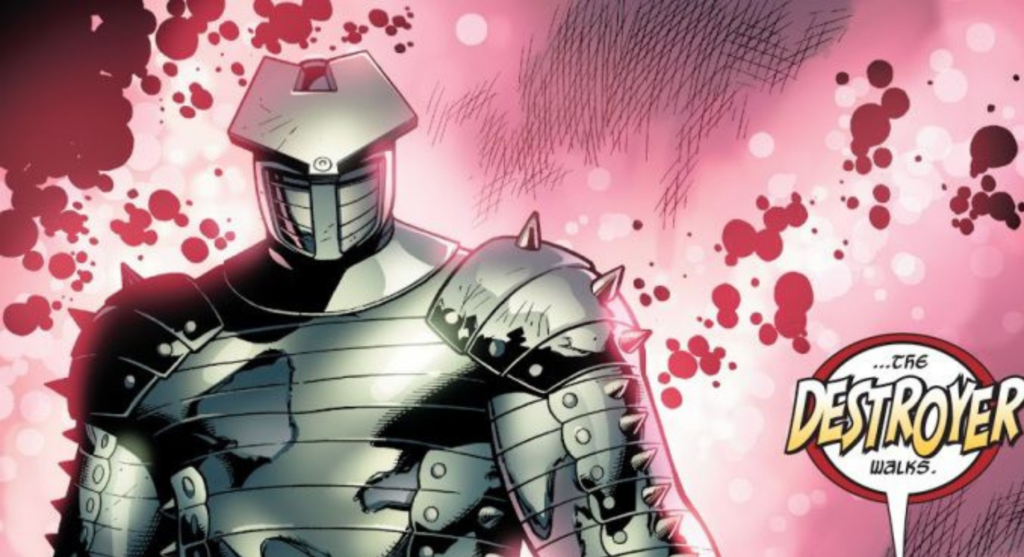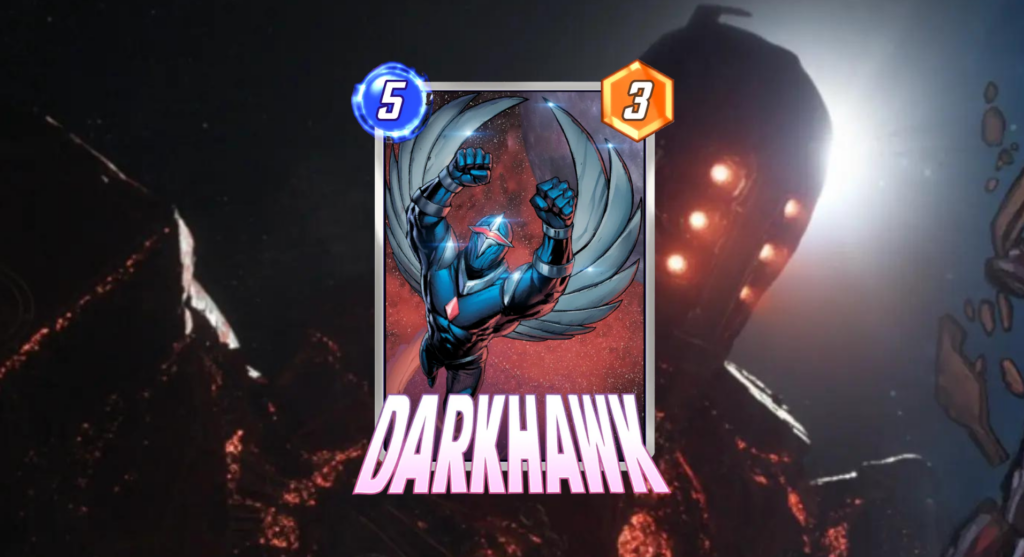- Arishem is a powerful ramp card in Marvel Snap that gives players an energy advantage each turn, but adds 16 random cards to their deck.
- Despite its randomness, Arishem decks dominate higher ranks due to skilled players optimizing the unpredictable cards, while struggling at lower ranks.
- Counter strategies include using cards like Darkhawk and Rogue to exploit the deck size or nullify Arishem’s effects.
Marvel Snap has seen its fair share of widely different archetypes dominating the meta over the years. Usually, these archetypes only dominated for a short amount of time, before being balanced.
However, a single card has completely changed the way the game is played. Here’s how Arishem, a card many thought to be a fun meme at first, completely overtook the top ranks of the game.
What Does Arishem Do?

Arishem is another addition to a set of cards that fit the ramp archetype, such as Electro. He also fits the randomizer and discount archetype, like Loki.
On game start, he gives you additional energy. From then on, you always have an energy advantage over your opponent, as you gain one every single turn as well.
This extreme benefit is balanced around his downside, making your decks inconsistent. Arishem does this by adding 16 random cards into your deck, adding onto your own cards.
Untapped showed Arishem decks exclusively dominating the top spots for multiple months. Even after new cards have been released, Arishem comfortably sits in Tier 1, performing the best in Conquest Mode.
Dominates At Higher Ranks, Meme At Lower Ones

Arishem is extremely good, but that’s not all. One reason he’s so popular as well as strong is because he makes each game new. This explains why he dominates at higher ranks, where players can better make use of the randomly generated cards they’re given.
In contrast, most Arishem decks struggle to keep up with simple combo decks that you’d find at lower ranks. If you try to look at Arishem stats on average, he’s barely above average. However, at Infinite rank, his cube rates shine the most.
How Good Is An Energy Advantage?
Simply put, ramp isn’t that great on its own. Cards like Electro at most make you put out two six cost cards. However, the reason Arishem redefines ramp is because you start with this extra energy.
This makes it very easy to gain priority at the early stages of the game, allowing you to put out your Echos and Teenage Warheads efficiently.
This also pairs well with other discount and ramp cards such as Loki or Sera, making your entire hand cost zero at times. Overall, this effect is the single best one in the game, but is the downside enough to justify it?
How Bad Is Randomness?

Randomness by itself can be quite frustrating. If you make a traditional combo deck, not getting your pieces together can make winning matches impossible. However, with Arishem, you don’t really build your decks for that. There are cards that benefit from the randomness, and cards that completely eradicate it.
Loki, for example, steals your opponent’s deck and discounts it. This makes any randomness irrelevant, as you’d be using cards from your opponent’s deck. There are also cards like Mockingbird that get a discount by playing these randomly generated cards.
However, even if you don’t exploit the downside, the randomness can be dealt with. Most cards in the game can find their uses somewhere, and having your main deck filled with tech cards such as Shang-Chi lets you make the most of whatever Arishem generates for you.
Are There Any Counters?

As strong as Arishem is, there are cards that let you play around his strengths. The most obvious of these are cards that buff themselves depending on the enemy’s deck size, such as Darkhawk or Cassandra Nova.
You can also aim to counter specific Arishem subarchetypes such as using Rogue or Enhantress to counter ongoing and discount shenanigans. You can also play Shang-chi or Leech to deal with the enemy’s Blobs.
Thank you! Please share your positive feedback. 🔋
How could we improve this post? Please Help us. 😔
Heya, I’m Asad (Irre) Kashif! I’ve been writing about anything and everything since as far back as I can remember. Professionally, I started writing five years ago, working both as a ghostwriter and writing under my own name. As a published author and a council member in Orpheus, my journey in the world of writing has been fulfilling and dynamic.
I still cherish the essays I wrote about my favorite PS2 games, and I’m thrilled to have transformed my passion for game journalism into a career. I’m a theory crafter for Genshin Impact (and now Wuthering Waves) and have a deep love for roguelites and roguelikes. While I prefer indie games for their distinct aesthetic and vibes, I do enjoy triple-A games occasionally. I’ve also been playing League since season 6, and I main Akali! I have a keen interest in discovering and playing more obscure games, as well as researching forgotten titles. Additionally, I am a front-end programmer who dabbles a bit in gamedev occasionally.




